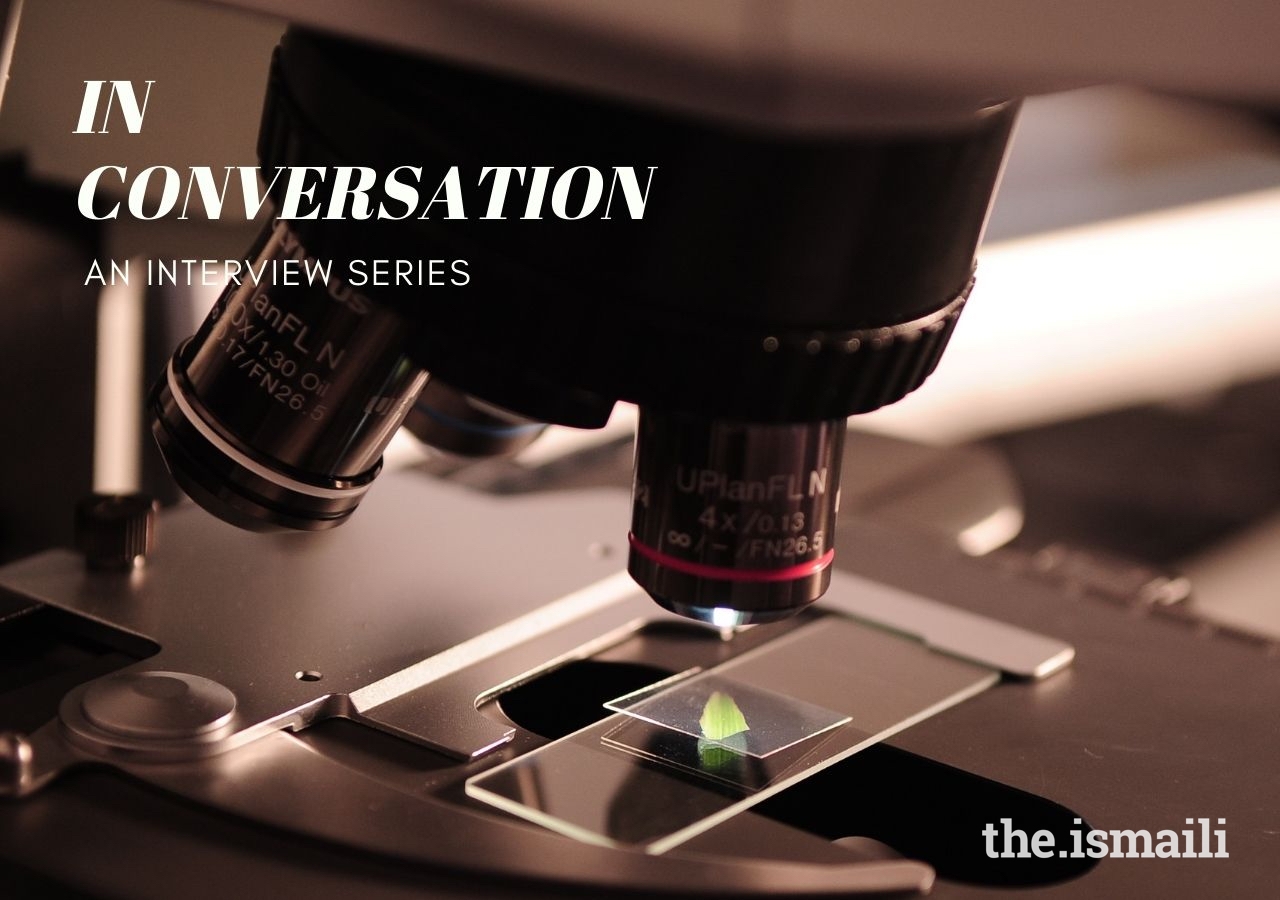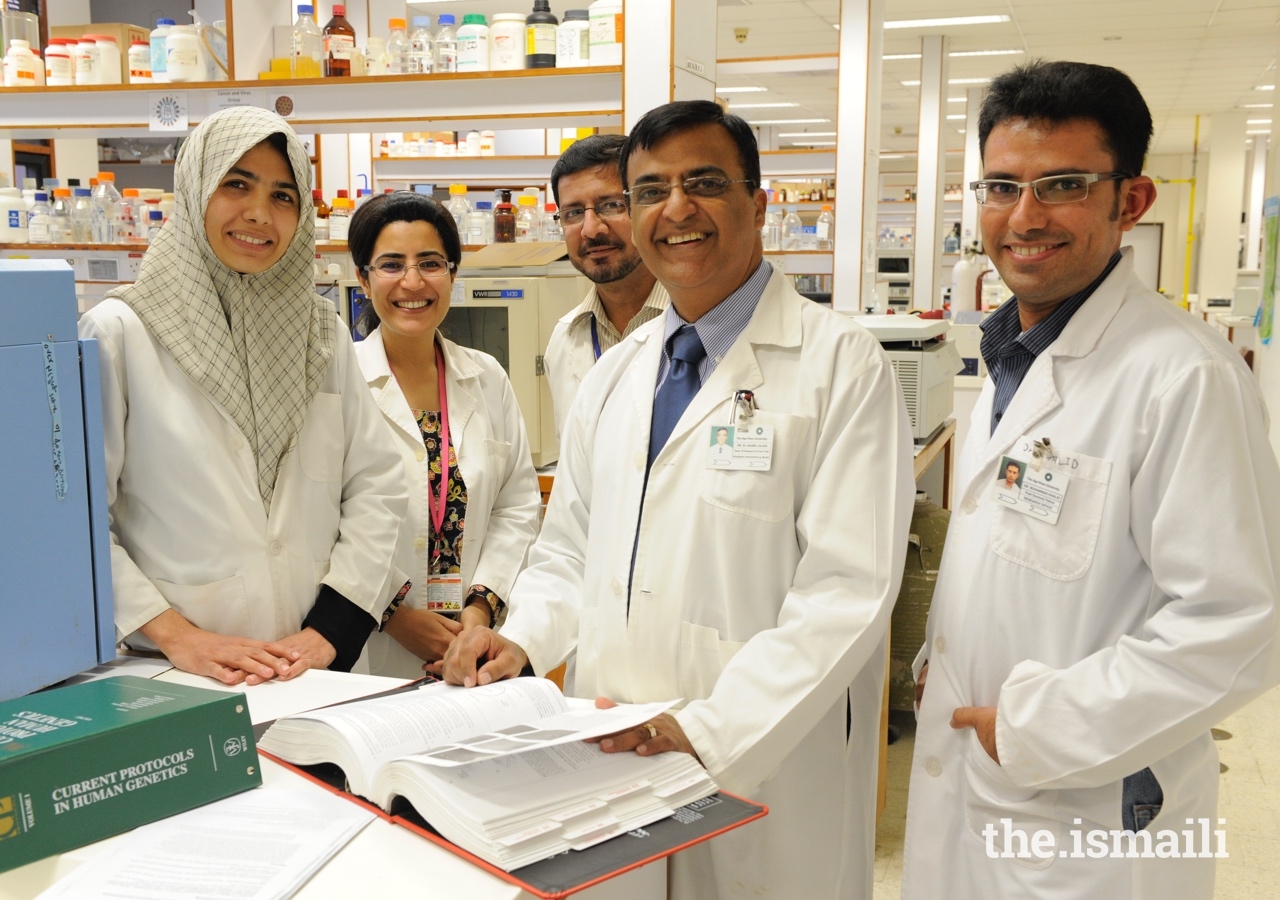Earlier this summer, the Aga Khan University and the NOVA University in Lisbon co-hosted a symposium on stem cell science, regenerative medicine, and the ethics surrounding these advances in scientific research. An esteemed panel of experts in the fields of science, theology, law, and ethics came together to present, discuss, and debate on the various issues and anticipated advances in this field.
To shed more light on this complex topic, Professor Lalani explains what stem cells are, discusses the implications of such scientific breakthroughs, and describes some of the Aga Khan University's work in this growing field.
In today’s world, new scientific and technological breakthroughs are occurring at such a rapid rate. What implications do these have for the global community?
It was the pre-Socratic Greek philosopher, Heraclitus, who said that "Change is the only constant in life.” Science and technology have had a profound impact on society, which is ever-expanding. Since the advent of the farmer’s plough, science has changed how we live and what society believes. Applications of science and technology have made life easier, freeing up time and enabling humans to reflect on the conditions in which we live, grow, age, and die. It impacts every aspect of our life from modes of communication, our homes, the way we work, transportation, the food chain, and even the quality and length of our lives. Technological advances impact how society evolves, its moral values, ethics, legal systems, privacy, individuality, and basic philosophies of humankind.
What exactly are stem cells?
Stem cell is a term that is applied to a cell which can give rise to different cell types. Stem cells have a unique ability to renew themselves by dividing even after periods of dormancy. In many organs, for example, the skin, they serve as an endogenous repair or replenishing system. Stem cells can broadly be categorised into two categories: embryonic stem cells, and non-embryonic or adult stem cells. There is a third kind of stem cell called an induced pluripotent stem cell (iPSC). The iPSC cell is generated in the laboratory where for example an adult skin cell can be converted into ‘embryonic cell’ which in-turn can be made to become any cell type.
Stem cell research is perhaps one of the most exciting and rapidly evolving areas in the life sciences today. Research into the biology and application of stem cells holds much promise. This includes understanding disease processes, targeting and replacing diseased cells, tissues and organs, developing new body parts, repairing and or replacing damaged cells or tissues, discovering new drug targets and therapies. Using the body’s own cells means there would be no transplant rejection.
What potential do discoveries in stem cell research hold for the future of medical advancement and treatment?
The potential applications arising out of research on stem cells are in the following broad areas: regeneration, repair, replacement, and drug discovery.
Replacing damaged or dead cells in many organs is a challenge. When an organ such as the heart or brain is injured following a heart attack or a stroke the possibility of regenerating the damaged area by stimulating stem cells in the vicinity of the damage in the heart or brain is an area of intense research. It may be possible to either stimulate the organ’s own resident stem cells to replace damaged or dead cells or implant stem cells to do the same.
There are over 5,000 registered clinical trials involving stem cell research covering diseases of the brain and nerves (e.g. Alzheimer's, Parkinson's, stroke), eyes (e.g. macular degeneration), heart (e.g injury following a heart attack), liver (e.g. cirrhosis), pancreas (e.g. diabetes), etc.
Scientists are developing ‘mini-organs” called organoids, such as brain, heart, liver and other organs in the laboratory. These are early-stage organ-like tissues generated from stem cells. Whilst these are not fully functional or mature organs, they allow scientists to learn about how organs develop and study diseases which arise in these organs.
The other areas of research involve the development of human organs in an animal for transplantation. The number of patients who require an organ transplant (e.g. kidney, heart, lung, liver, pancreas) far exceeds the number of donor organs. To address this, scientists are engineering human-animal chimeras to generate human organs for transplant.
Why are some scientists wary about these developments? What are the ethical questions that arise as a result?
The pace of scientific advances today is outpacing society's understanding of the implications of the application of science. Ethical questions and debates relate to:
- The destruction of embryos to create embryonic stem cells for research;
- Developing animal-human chimeras to develop organs for transplantation;
- Developing organoids in the laboratory and implications thereof. For example, does the mini-organ brain have cognition?
- Deriving sperm and egg from a stem cell and developing an embryo;
- Unproven stem cell therapies and clinics
What are the extent of the regulatory concerns surrounding stem cell science and regenerative medicine?
The phenomenon of widespread marketing of unproven stem cell therapies directly to consumers for a wide range of treatments (e.g. Alzheimer's, autism, arthritis, cerebral palsy, Parkinson's disease, stroke, etc) is being offered by clinics across the globe. There are only a small number of conditions where stem cells are approved as treatments.
Stem cell-based interventions remain unproven and experimental in nature. Despite this, anecdotal reports are presented as hard evidence by those marketing stem cell therapies. There is little or no evidence supporting their use and they have been associated with a range of harms.
Permissive regulatory environments have enabled the proliferation of these clinics and patients to travel from across the world to access them. These clinics are also accessed by the local population. Stem cell tourism is considered synonymous with unproven cell therapies or scienceploitation. Cross border research marketing facilitates clinics relocating from a regulated less permissive country to a country with minimal to no regulation, offering a permissive environment to market these unproven therapies.
How is the Aga Khan University (AKU) harnessing this new research in its role as an academic institution and as a university focused on positive social development?
As highlighted earlier, the application of stem cells to curing diseases is in its early stages. Hence, it would be premature for AKU to be undertaking potential therapies at this stage. Instead, AKU will be partnering with other institutions in clinical trials utilising stem cells.
Stem cell research is perhaps one of the most exciting and rapidly evolving areas in the life sciences today. Stem cell scientists are increasingly working with bio-engineers, chemists, physicists, computer scientists, ethicists, media specialist, educationists, clinicians, and data scientists.
The Centre for Regenerative Medicine and Stem Cell Research (AKU-CRM) at AKU was established in 2016. The Centre has partnered with the Eli and Edythe Broad Center for Regeneration Medicine and Stem Cell Research, at the University of California, San Francisco to develop research capacity in stem cell biology and regenerative medicine.
AKU-CRM faculty are engaged in the study of:
- The biology of stem cells
- Stem cell niche areas
- Stem cell diseases including cancer
- Tissue repair to advance human health and restore normal function.
Finally, there are important and evolving cross-faculty initiatives on education, ethics, and social governance, which will expand to involve faculty in the Faculty of Arts and Sciences with a background in the physical and social sciences.
---
Dr El-Nasir MA Lalani is the Professor of Stem Cell Biology and Translational Medicine with a cross appointment in the Department of Pathology and Laboratory Medicine as Professor of Molecular and Cellular Pathology. Dr Lalani was appointed as the Founding Director of the Aga Khan University-Centre for Regenerative Medicine and Stem Cell Research (AKU-CRM) in 2016. The program is developed in partnership with the Eli and Edythe Broad Centre for Regeneration Medicine at University of California, San Francisco. His previous position at AKU was the Founding Dean of Research and Graduate Studies which he held for 8 years. Prior to joining AKU, he held academic appointments with University of Birmingham, UK and Imperial College, UK. Dr Lalani has more than 150 papers, articles and book chapters published to his credit. His academic career and expertise include stem cell and cancer biology, pathology, bio-banking and bioethics. His research interests are in epithelial cell biology, prostate, breast and neck cancer, epithelial and stem cell biology, and molecular pathology.









